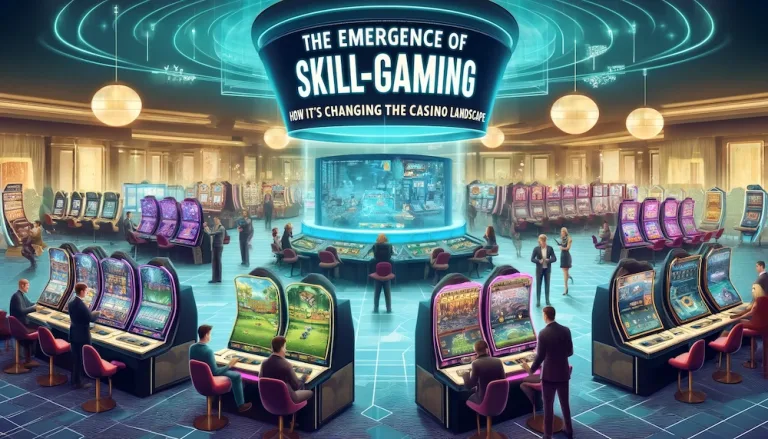The traditional casino landscape, dominated by games of chance, is undergoing a significant transformation with the rise of skill-based gaming. This new trend caters to a generation of players who value strategy and skill over pure luck, providing a fresh and engaging way to experience casino entertainment. As casinos adapt to these changing preferences, skill-based games are becoming an integral part of the gaming floor, reshaping the future of the industry.
The Appeal of Skill-Based Gaming
Skill-based games combine elements of traditional casino games with video game-like mechanics, offering players more control over the outcome. This appeals particularly to younger audiences who have grown up with interactive and skill-driven video games. These games reward player proficiency, strategic thinking, and quick reflexes, making them more engaging and competitive.
Types of Skill-Based Games
Several types of skill-based games are gaining popularity in casinos:
- Skill-Based Slot Machines: Unlike traditional slots, which rely purely on random outcomes, skill-based slots incorporate elements where player skill can influence the result. These might include mini-games or bonus rounds that require quick decision-making or dexterity.
- Arcade-Style Games: These games mimic popular arcade or mobile games, such as shooting or puzzle games, where players can earn points or prizes based on their performance.
- Table Games with a Twist: Classic table games like blackjack and poker are being reimagined to include skill-based elements, where players can gain advantages through strategic play.
Benefits for Casinos
The integration of skill-based gaming offers several benefits for casinos:
- Attracting a Younger Demographic: Traditional casino games often appeal to older generations. Skill-based games attract millennials and Gen Z players, who are more inclined toward interactive and skill-oriented entertainment.
- Increasing Engagement: Skill-based games tend to keep players engaged longer than traditional games of chance, as they provide a sense of accomplishment and progress.
- Differentiation: Offering a mix of traditional and skill-based games allows casinos to differentiate themselves in a competitive market, appealing to a broader audience.
Regulatory Challenges
Introducing skill-based games in casinos also presents regulatory challenges. Regulators need to understand these new types of games and determine how they fit within existing gambling laws. Ensuring that skill-based games are fair and do not exploit players is crucial, requiring transparency in how games operate and how outcomes are determined.
The Future of Skill-Based Gaming
The future of skill-based gaming looks promising, with continuous innovation and development. Advances in technology, such as virtual reality (VR) and augmented reality (AR), could further enhance the immersive experience of skill-based games. Additionally, the integration of esports elements, where players compete in tournaments for cash prizes, could become a significant draw.
Conclusion
Skill-based gaming is a revolutionary trend that is reshaping the casino industry. By blending traditional gambling with interactive and strategic gameplay, casinos can attract a new generation of players and offer a more diverse and engaging gaming experience. As this trend continues to evolve, skill-based games are set to play a pivotal role in the future of casino entertainment, bridging the gap between traditional gambling and modern gaming preferences.

Garry Sputnim is a seasoned journalist and storyteller with over a decade of experience in the trenches of global news. With a keen eye for uncovering stories that resonate, Alex has reported from over 30 countries, bringing light to untold narratives and the human faces behind the headlines. Specializing in investigative journalism, Garry has a knack for technology and social justice issues, weaving compelling narratives that bridge tech and humanity. Outside the newsroom, Garry is an avid rock climber and podcast host, exploring stories of resilience and innovation.


